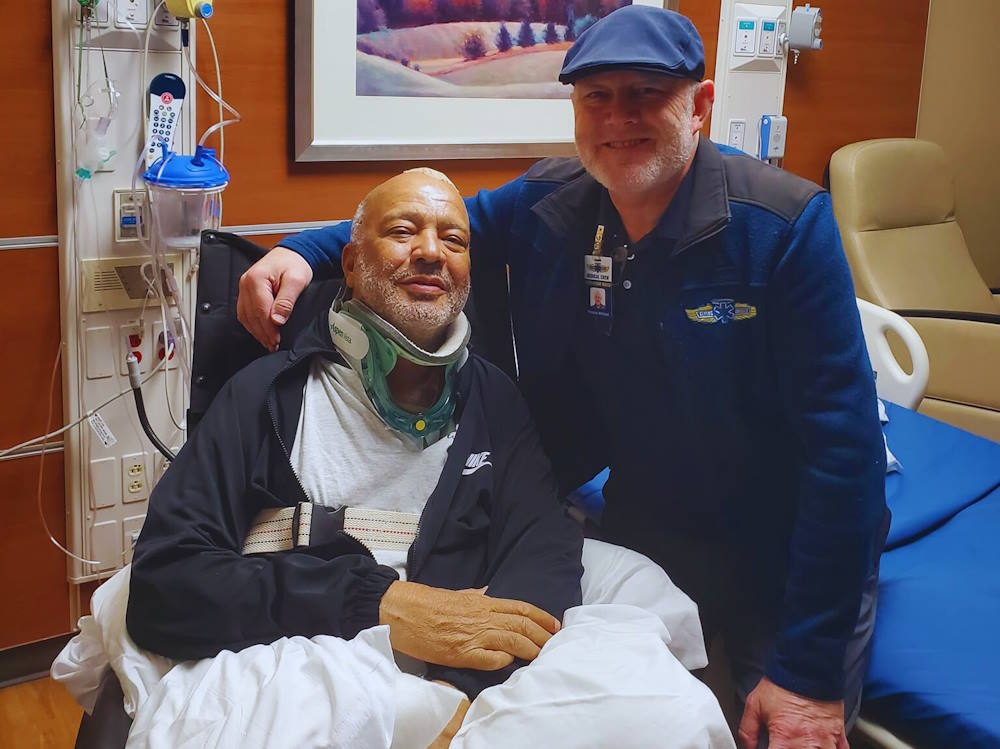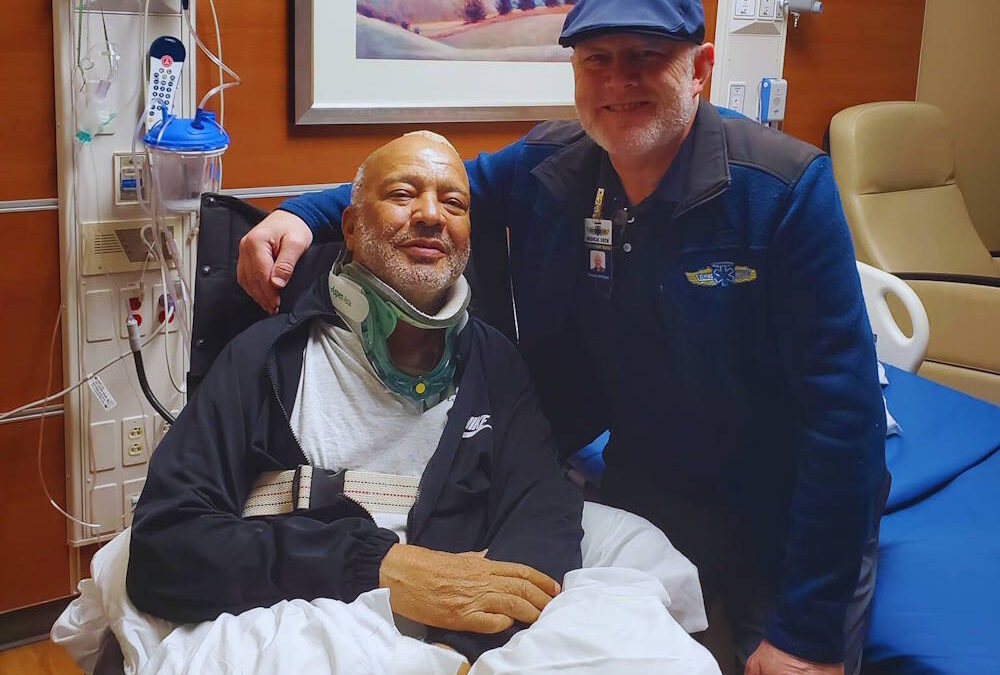
Despite the advancement of working conditions across all industries, workplace injuries remain an unfortunate reality. Accidents in the workplace can disrupt lives in an instant, leaving both employees and employers managing the aftermath and navigating the complex world of workers’ compensation claims. Flying Angels plays an important role in providing non-emergency medical transport (NEMT) services for workers’ compensation patients, supporting the needs of injured workers.
Flying Angels’ commitment to safety and efficiency helps ensure injured workers have access to the care they need. That reliable access is key to recovery. Workers face a wide variety of serious injuries, including severe burns, head trauma, and injuries that impact mobility. Flying Angels’ expertise in providing NEMT services bridges the gap between hospitals, rehabilitation centers, and homes, easing the journey toward recovery.
Flying Angels specializes in providing services to people flying on commercial airlines. However, the company also provides ground transportation services, including those required by injured workers, including hospital discharge transportation. They operate as a trusted partner for case or network managers and patients.
Industries Prone to Workplace Injuries
Certain industry sectors have more workplace injuries that lead to workers’ comp claims and the need for NEMT services for workers’ compensation patients. The federal government maintains records in this area, with the U.S. Bureau of Labor Statistics (BLS) tracking the number of workers’ injuries by industry each year.
The BLS reports that in 2023 alone, more than 200,000 people who work in the accommodation and food services industry were injured in everything from slips and falls to burns and muscle injuries. Manufacturing employees also face potential challenges such as hazardous materials exposure, injuries from machinery, and burns. The manufacturing sector reported more than 326,000 injuries in 2023.
However, healthcare ranks first among all industries in the nation for on-the-job injuries. In 2023, the healthcare and social assistance sector reported 471,600 injuries and illnesses, reflecting the physical demands placed on nurses and other healthcare workers.
The Importance of NEMT Services For Workers’ Comp Patients
After a worker is injured on the job, the focus is where it should be: the health of the worker., Once they are receiving the treatment they need and their situation has stabilized, both the injured worker and their employer need to manage the practicalities of the situation. One of those is transportation.
The need for a nurse to accompany a patient during transportation, whether it’s ground transportation or on a commercial flight, occurs from a variety of injuries. Some frequent examples include TBI, SCI, CVA, or burn victims, who may require transport to specialized facilities for advanced care or rehabilitation before they can return to work.
Quality transportation for workers’ compensation patients discharged from the hospital is critically important for several reasons. Many patients require follow-up appointments, therapy sessions, or access to medications after discharge. Reliable transportation ensures they can attend these essential appointments without delays.
NEMT also promotes safety. Some patients, especially those with mobility challenges, post-surgical restrictions, or cognitive impairments, need trained personnel to transport them safely. Poor transportation options can increase the risk of injury or harm during transit.
Perhaps most importantly, discharge from the hospital can be a vulnerable time for patients and their families. Reliable, timely, and comfortable transportation reduces the stress of transitioning back home or to a care facility, allowing patients to focus on recovery.
How Flying Angels Services Support Workers’ Compensation Patients
Many types of workplace accidents result in mobility impairments, making travel more difficult. An experienced medical professional like a Flying Angels nurse can provide the care that a patient needs. As an NEMT company, Flying Angels is dedicated to addressing the specific needs of injured workers in a variety of ways.
Customized equipment. These include custom wheelchairs and comfort slings to ensure safety and support during transit.
Medical expertise. Flying Angels nurses have critical care and emergency experience and provide continuous medical supervision, ensuring the well-being of patients throughout their journey.
Comprehensive coordination. For workers’ compensation patients who need to fly, RN Flight Coordinators manage all logistics, including communication with healthcare providers, and case or network managers to streamline the process.
Navigating workers’ compensation claims can be complex. Flying Angels collaborates closely with case or network managers to ensure seamless communication, keeping all parties informed and coordinated. They can also assist in obtaining necessary authorizations to prevent delays in patient care and offer comprehensive records of transport services to support claims and ensure transparency.
With their team of highly trained flight nurses, custom equipment, and seamless coordination, Flying Angels takes the stress out of transportation, ensuring injured workers receive the care they need and the dignity they deserve. By focusing on the unique needs of injured workers and collaborating with healthcare professionals, Flying Angels provides patients with the highest standard of care during transport, aiding in their recovery and providing peace of mind to all involved.

